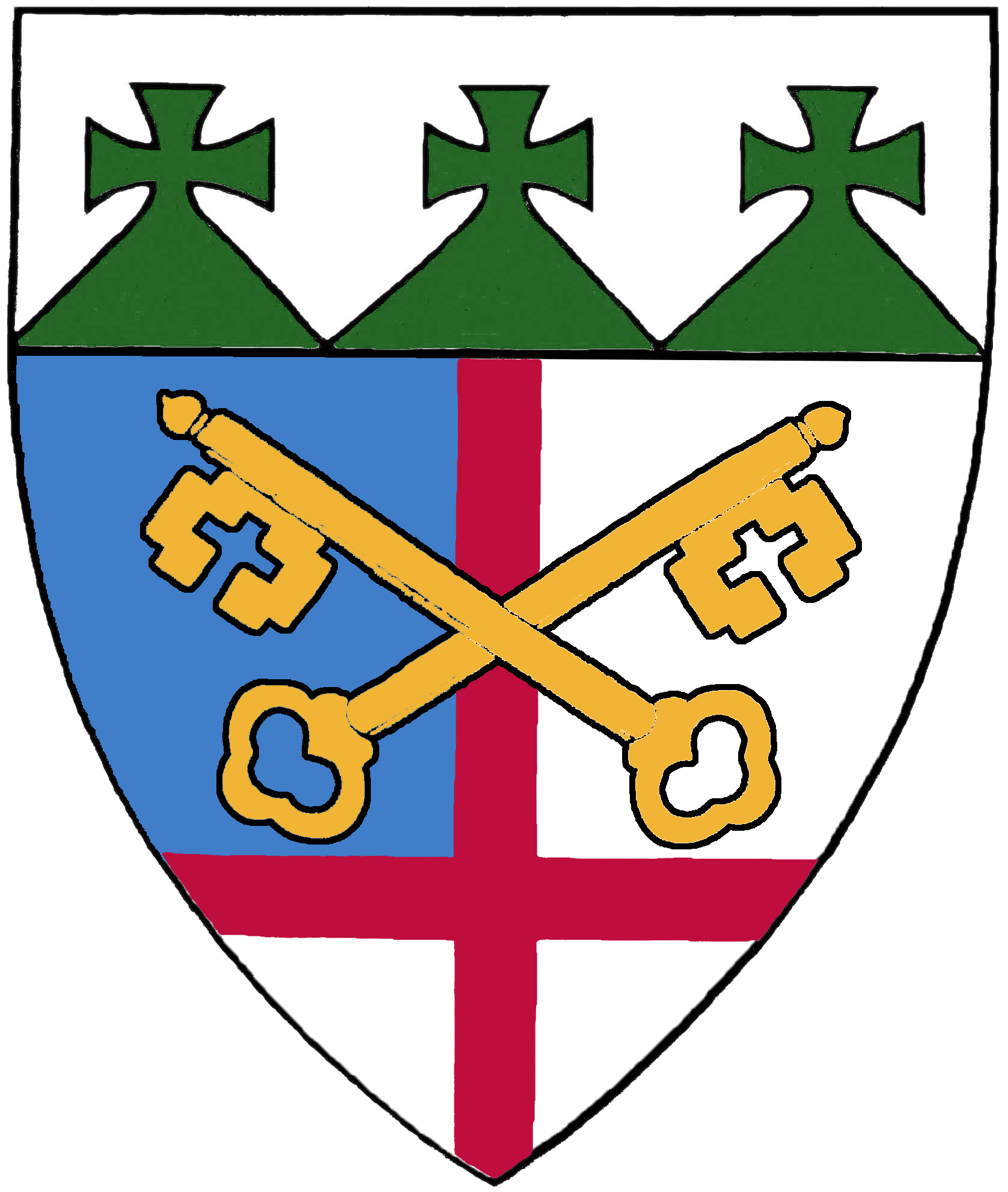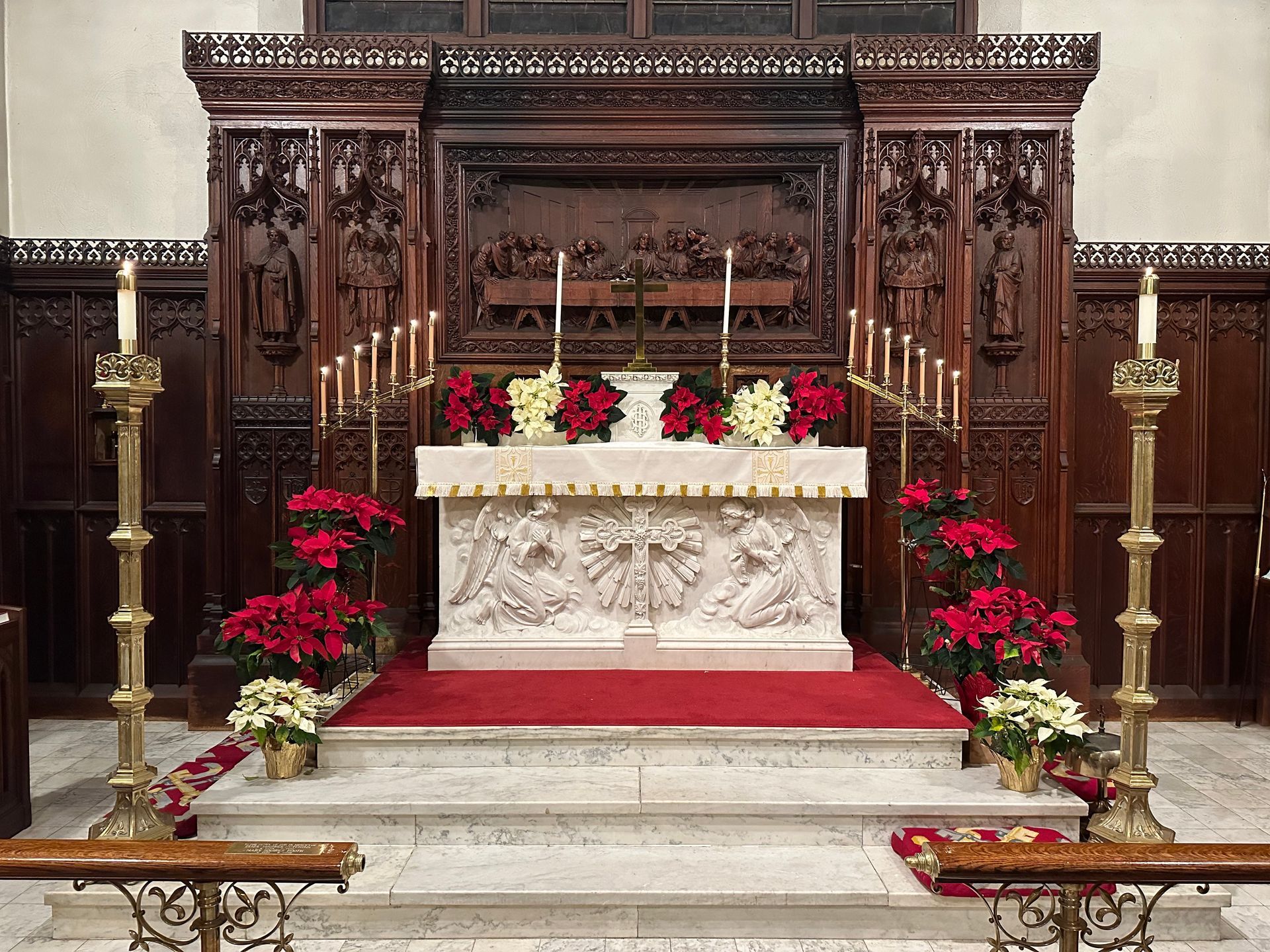you are a beloved child of God
Saint Peter's invites you to worship in the Anglo-Catholic tradition, to understand how beloved you are, and to know and make known the grace of God through Jesus Christ.
St. Peter's
AT A GLANCE
You Are Beloved
These days, the majority of Episcopalians weren't raised in the Episcopal faith tradition. Inclusivity for us isn't just lip service, it's about truly helping all find a home here.
St. Peter's is parish of the Episcopal Church, the Anglican Communion, and prayerfully steeped in the Book of Common Prayer.
Serving Our Community
St Peter's has been a cornerstone of the Greater Bennington community since its founding in 1834. We strive to stay deeply connected to our town and community.
Worship With Us
Our Sunday Routine
1st and 3rd Sundays of the month:
8:00 am - Morning Prayer (Rite I)
10:00 am - Morning Prayer (Rite II) - also available via Zoom/Livestream.
2nd and 4th Sundays of the month:
8:00 am - Holy Eucharist (Rite I)
10:00 am - Holy Eucharist (Rite II) - also available via Zoom/Livestream.
5th Sundays, Holy Days, and Special Occasions:
9:00 am - Holy Eucharist (Rite II) - also available via Zoom/Livestream.
Worship During the Week
Daily Prayer on Zoom: Tuesday, Wednesday & Thursday Mornings @ 8:30 am
Daily Morning Prayer through Zoom
[click here to join]
Bible Study: Tuesdays @ 6pm
A bible study on the previous Sunday's readings. Join us via zoom.
Mid-Week Mass with Healing: Wednesdays @ 12 noon
Holy Communion with Healing Oils and Laying on of Hands
Contemplative Evening Prayer: Wednesdays @ 5:00 pm
Contemplative Prayer followed by Centering Prayer and Lectio Divina
Upcoming Events
Sat. Feb. 7 - CANCELLED 5:30 pm, Celtic Service
Join us for a candlelit Celtic Service with Holy Communion at 5:30pm. All are welcome!
Sun. Feb. 8 - 8 & 10 am, Holy Communion
Epiphany Seasonal BulletinJoin us for Holy Communion
8 am - Said Service (no music, Rite I)
10 am - Choral Service (music, Rite II)
The 10 am service will also be available via zoom.
A coffee hour follows each service.
Sun. Feb. 14 - 11 am, Installation of Fr. Jeremy/Bishop Shannon McVean at St. Peters
Join us at St. Peters in celebrating Fr. Jeremy's installation, Bishop Shannon McVean presiding at 11 am. A luncheon will follow. Please come and share in this joyous event. All are welcome!
Sun. Feb. 15 - 8 am MP ONLY; 10am HE @ St James w/ Bishop Shannon & Confirmations
Join us for Morning Prayer at 8am in the Lady Chapel.
At 10 am join us in celebrating Holy Communion with Bishop Shannon McVean at this constellation service at 10 am at St. James. There will also be confirmations, receptions and renewal of babtismal vows.
The service will be available on Zoom. All are welcome!
Wed. Feb. 18 - 12 Noon Ash Wednesday Service
12pm Low-Mass Ash Wednesday Service with Holy Communion
Sun. Feb. 22 - 8 & 10 am, Holy Communion
Join us for Holy Communion
8 am - Said Service (no music, Rite I)
10 am - Choral Service (music, Rite II)
The 10 am service will also be available via zoom.
A coffee hour follows each service.
Sun. Mar. 1 - 8 & 10 am, Morning Prayer
Morning Prayer BulletinJoin us for Advent Morning Prayer
8 am - Said Service (no music, Rite I)
10 am - Choral Service (music, Rite II)
The 10 am service will also be available via zoom.
A coffee hour follows each service.
Sat. Mar. 7 - 5:30 pm, Celtic Service
Join us for a candlelit Celtic Service with Holy Communion at 5:30pm. All are welcome!
Sun. Mar. 8 - 8 & 10 am, Holy Communion
Join us for Holy Communion
8 am - Said Service (no music, Rite I)
10 am - Choral Service (music, Rite II)
The 10 am service will also be available via zoom.
A coffee hour follows each service.
Connect with us
Whether you're an introvert or an extrovert, new to the Episcopal faith or been part of it your whole life,
we look forward to getting to know you!
200 Pleasant Street, Bennington, Vermont 05201
Sign up with your email address to receive news and updates.



